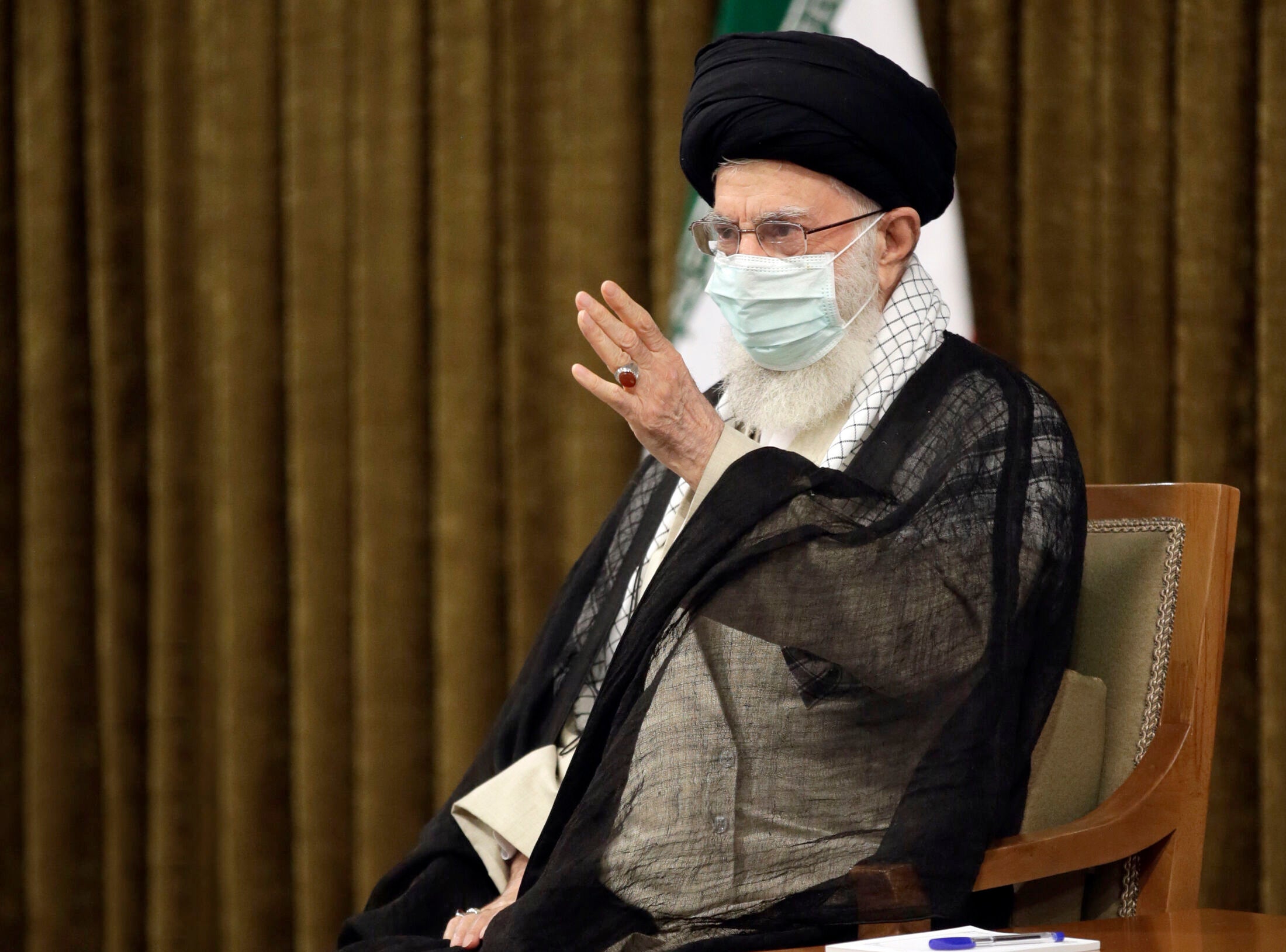Iran's supreme leader criticizes US as nuclear talks stalled
Iran’s supreme leader has called the U.S. “stubborn” in stalled nuclear talks in Vienna for discussing Tehran’s missiles and regional influence

Your support helps us to tell the story
From reproductive rights to climate change to Big Tech, The Independent is on the ground when the story is developing. Whether it's investigating the financials of Elon Musk's pro-Trump PAC or producing our latest documentary, 'The A Word', which shines a light on the American women fighting for reproductive rights, we know how important it is to parse out the facts from the messaging.
At such a critical moment in US history, we need reporters on the ground. Your donation allows us to keep sending journalists to speak to both sides of the story.
The Independent is trusted by Americans across the entire political spectrum. And unlike many other quality news outlets, we choose not to lock Americans out of our reporting and analysis with paywalls. We believe quality journalism should be available to everyone, paid for by those who can afford it.
Your support makes all the difference.Iran's supreme leader on Wednesday called the U.S. “stubborn” in stalled nuclear talks in Vienna for discussing Tehran’s missiles and regional influence.
Supreme Leader Ayatollah Ali Khamenei’s remarks come as his hard-line protege, President-elect Ebrahim Raisi is posed to be sworn in next week as the head of the country’s civilian government and as talks on reviving the deal remain stalled in Vienna.
While Raisi has said he wants to return to the accord, which saw Iran limit its enrichment of uranium in exchange for the lifting of economic sanctions, Khamenei seemingly called for a more-adversarial approach in his remarks. They also appeared to describe outgoing President Hassan Rouhani’s eight-year government as naive for its approach in reaching the 2015 agreement as its officials sat before him.
“Others should use your experiences. This experience is a distrust of the West,” Khamenei said in remarks broadcast by state television. “In this government, it was shown up that trust in the West does not work.”
He added: “Westerners do not help us, they hit wherever they can."
The U.S. State Department did not immediately respond to a request for comment. The Biden administration days earlier criticized Iran for saying America had delayed a possible prisoner-swap deal, calling it “an outrageous effort to deflect blame for the current impasse.”
French Foreign Ministry spokeswoman Agnes Von Der Muhll also told journalists Monday that it was “urgent for Iran to return to the negotiating table."
“Through its actions, Iran continues to exacerbate the nuclear situation,” she said. “If it continues down this path, not only will it delay the moment when an agreement might be reached providing for the lifting of sanctions, but it could compromise the very possibility of concluding the Vienna talks and restoring the” deal.
In his remarks Wednesday, Khamenei described American negotiators as verbally promising to lift sanctions, but said any return to the nuclear deal must “include a sentence” on negotiating on other issues.
“By putting this sentence, they want to provide an excuse for their further interventions on the principle of (the deal) and missile program and regional issues," the leader said. "If Iran refuses to discuss them, they will say that you have violated the agreement and the agreement is over.”
___
Gambrell reported from Dubai, United Arab Emirates. Associated Press writer Isabel DeBre in Dubai contributed to this report.